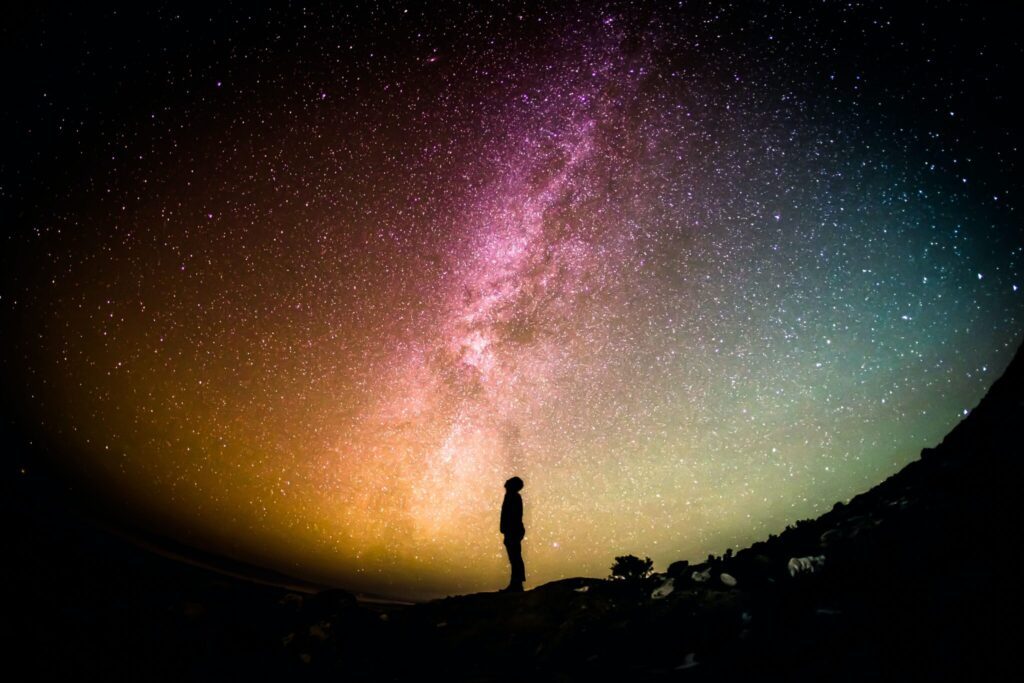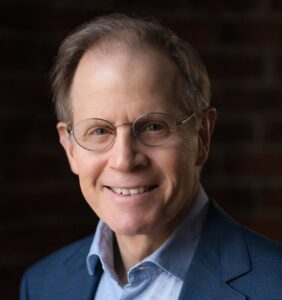Dr. Dan Siegel on a “Self” Much Bigger Than the Individual
We’re happy to be able to share an abridged excerpt here from Dr. Dan Siegel’s new book, IntraConnected: MWe (Me + We) as the Integration of Self, Identity, and Belonging, available now from W.W. Norton. Learn more and purchase the book here.

Belonging in the world—feeling membership, an experience of joining in our connections with people around us and with nature—is shaped by our identity, the defining features of our center of experience of being alive, our sense of self.
But what exactly is this self truly made of?
A range of scientific approaches to this question leads to a suggestion that the term “self” generally refers to how we experience the subjective sensations of being alive, the perspective we have on the world, and the agency we assert in shaping our behavior and interactions. When we use the term “self,” we broadly mean our sensation, perspective, and agency.
Yet there are many approaches other than science for exploring reality. Science is a term we use to generally denote a rigorous way humans observe patterns in the world and create hypotheses about what that world is like. In Western science, we test those ideas with experimental paradigms to challenge our viewpoints and confirm, or disprove, our proposals on the nature of nature; on the way reality functions. I have been trained in the Western educational system, as a scientist as well as a physician, and this “scientific method” of hypothesis-testing and refutation has been the foundation for what I’ve learned as a researcher and clinician.
This Western bias of my training has also naturally shaped how I have been practicing as a psychotherapist for over thirty-five years. While looking for answers from science and medicine was a place to start, my search needed to be expanded by turning to wisdom traditions and immersive experiences of helping others as distinct but equally important “ways of knowing” about the nature of our lives. Within the human endeavor to make sense of the world, non-Western approaches to a disciplined way of understanding reality—including forms of Indigenous science in the careful observation of nature as well as contemplative insights from extensive meditative practices into the nature of the mind—offer important perspectives on the world and how life unfolds. These disciplined ways of studying reality may not use the Western hypothesis-testing approach and peer review process, but they offer crucial and distinct ways of rigorously observing and exploring the nature of our world—and of our “self.”
In these pursuits of understanding of this self, known as Dan, I have come to appreciate that our sense of self sometimes becomes distorted and misleads, constricts, and limits our well-being in life. Our subjective sensations may become filled with suffering experienced as chaos and rigidity; our perspective limited or distorted by filters beyond our awareness; our agency hampered by paralysis or overwhelmed by impulsivity.
In modern times, an experience of self—what is sometimes called a “sense of self”—that is defined only by our individual body as a center of identity and belonging can lead to the sadly common experience of disconnection, disillusionment, and despair. The ensuing anxiety, depression, and even suicidal thoughts and behavior are painful outcomes that are steadily increasing in our modern societies. But if you, like me, live within a culture that subscribes to this perspective of “identity equals body,” isn’t the “self” truly based solely in this bodily center? Akin to the statement that the mind is only the activity of the brain, questioning self as body alone is often not even a part of our inquiries into the nature of life. It is a modern construction, rarely challenged, that the individual is the center of self-experience. It may even seem inevitable, through this particular lens on identity, to say that our sensations, perspective, and agency come only from an individual, bodily source.
If you live in a modern culture, when you ask who or where or what you are, you likely point to your body, or perhaps your head, and say, “Here I am. This is me.” You might ask, from this common vantage point of contemporary life, how else would we see what the self is other than the individual? Yet by understanding the true nature of ourselves and how our identities and belonging actually can be expanded beyond the body as a center of sensation, perspective, and agency, we come to a wider view of how we are in fact connected with one another as human beings and within nature as members of a broader belonging, an identity that is integrated with more of the world than the body alone, a self that is a part of a synergy of systems much bigger than the individual. It is the hope of my new book, IntraConnected, that together we can transform our experiences from disconnection to connection and come to live a healthier, fuller, freer life, with enhanced personal flourishing, public health, and even with shared planetary well-being.
A tall order, you may think—to move from the experience of an individual’s identity to the health of life on Earth. But consider this: When we examine how the actions of our human family are influencing so many aspects of living systems on this precarious and precious planet upon which we live, from the impact of human endeavors on our shared air, water, and land to the social injustices and racism rampant in our civilization to the loss of fellow species with whom we share our biosphere, we can see that those consequences are each driven by the human mind. And it is this mind—so rarely defined yet so profoundly influential—that is at the heart of how well-being, or suffering, arises in our lives. I’ve spent the last four decades obsessed with questions of what the mind is and what makes for a healthy mind. This focus on self, identity, and belonging is a natural extension and application of this exploration to some of the most pressing challenges we face today: the health and flourishing of life on Earth.
If you’d like to explore these themes more fully, we highly recommend checking out Dr. Dan Siegel’s brand new book, IntraConnected: MWe (Me + We) as the Integration of Self, Identity, and Belonging, from which this abridged excerpt was drawn. The book is available now from W.W. Norton. Learn more and purchase the book here >>
About Dan Siegel

Dan Siegel, MD, is a Clinical Professor of Psychiatry at the UCLA School of Medicine and the Founding Co-Director of the Mindful Awareness Research Center at UCLA. He is also the Executive Director of the Mindsight Institute, which focuses on the development of mindsight, teaches insight, empathy, and integration in individuals, families, and communities. Dr. Siegel has published extensively for both the professional and lay audiences, with five New York Times best-selling books: Aware: The Science and Practice of Presence, Mind: A Journey to the Heart of Being Human, Brainstorm: The Power and Purpose of the Teenage Brain, and two books with Tina Payne Bryson, PhD: The Whole-Brain Child, and No-Drama Discipline. His most recent book is IntraConnected: MWe (Me + We) as the Integration of Self, Identity, and Belonging, available now.

try studying the Urantia book if you are serious about understanding our mind body and spirit and personality and how they function and unify under the directionization of Deity. without the awareness of Divine accompaniment, all your work and teaching is lacking in the foundation of our fundamental reality.